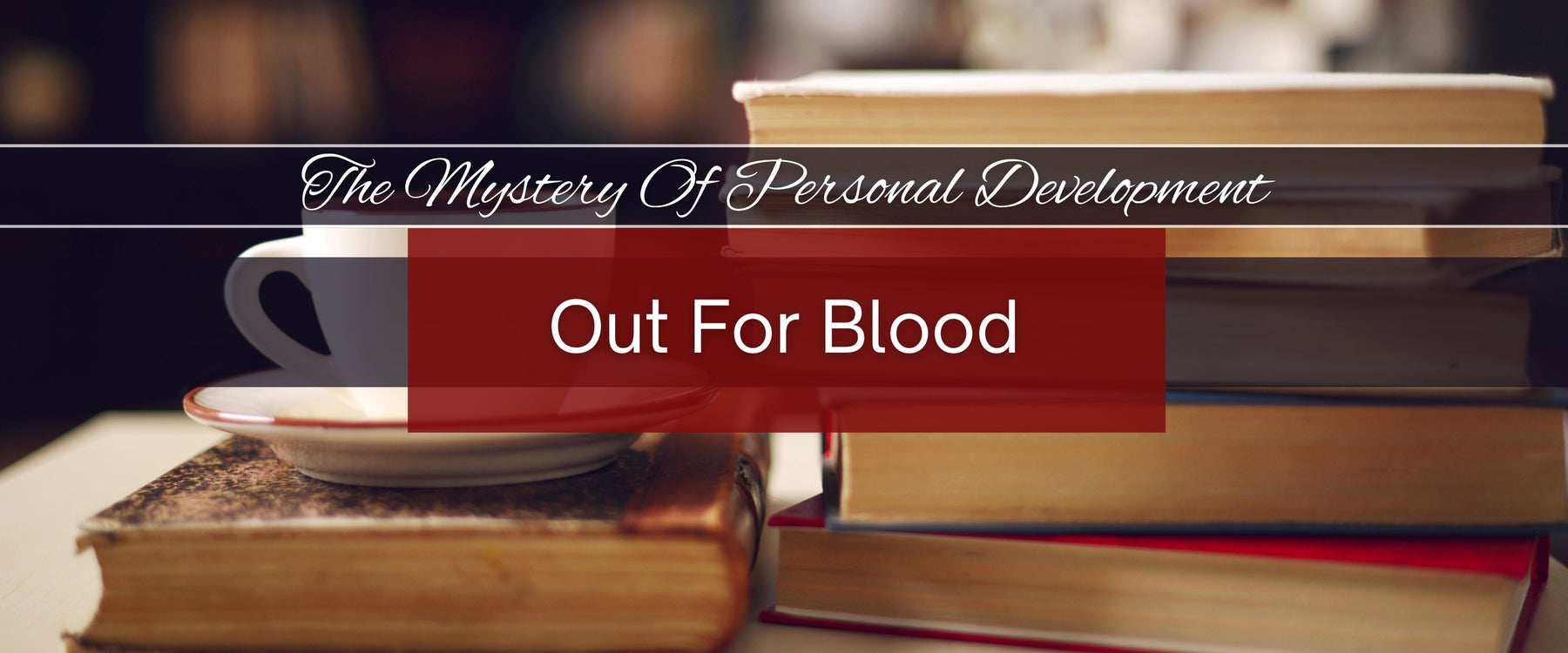
Out For Blood | The Mystery of Personal Development
"And contrary to the no spice, get thee Sexy away from me, I feel in romance books—with mystery I’m out for blood."
I dig me some good mystery.
Bodies and crime scene tape. Gunshot victims with a strange something that peeks a jaded seasoned detective’s interest (and mine).
I like the twist, the unexpected, the got-one-over-on-me story—because when I flip back they did tell me who the killer was, how they did it, what the ending would be.
Col. Mustard in the kitchen with the wrench.
It was right there!
The frustrated “Arg” because they told me and I missed it!
But also the gleam of excitement that they got one over on me. That I can be tricked.
That I can allow myself to enjoyably think harder, and dive deeper in the next book by that author.
I’ve met the characters, visited the precinct, met their family, learned their troubles and struggles, and cheered for them when they triumphed after putting the bad guy away—accomplished only by facing and succeeding over their own fears or issues.
And contrary to the no spice, get thee Sexy away from me, I feel in romance books (see this blog for some humorous take at my own reading in public boundaries), with mystery I’m out for blood.
Bring out your dead, your wounded, your downtrodden and bodily abused.
Patricia Cornwell’s Kay Scarpetta series I devoured twenty years ago following the life of a medical examiner—you know, the one who gets the bodies and delves deep into the detail on the body to determine cause of death, provide clues to the cops.
Dissecting and sampling.
Titles like Postmortem and Body Farm…these are not your fluffy, all off-screen cozy mysteries. (“Cozy” being the bloodless, all icky, violence-missing mystery version of the sexy-time-safe sweet romances that I prefer.)
But this darkness-delving and dead-body-diving character also had friends and family. And twenty years later from the last time I picked up one of those books, I still remember that she had a genius niece that grew up over the string of books, a cop partner-ish that was gruff and rugged but still had that I’ll-take-a-bullet-for-you code of protector honor.
Those stories stuck with me and it’s the relationships and people I remember. Not the crimes or the bodies.
So I wondered why in romance I prefer no sex and in mystery I prefer the…not really gore as I am NOT a horror fan. And if I get too much bad guy perspective I will mic drop a “peace out” and toss the book.
Sometimes literally.
So I wondered…
…and started asking myself questions…
Asking questions—if I am truly honest in not only what I am asking about but also in my answers—enables me to reflect and see things, learn things, I didn’t know.
(It’s a quaint idea I just stumbled upon recently.)
(I’m not kidding.)
The key is being willing to accept the answer, whatever it is.
And that can be a little scary and hard.
So I am practicing.
But the answer that came back to my mystery questions wasn’t too over-the-top hard to handle.
Stakes.
The harder, more brutally strange, bloody—life and death—the higher the stakes. People (characters) are dealing with the hardest of life’s issues.
Death, attack, hunting, psychosis—putting themselves and possibly their families in jeopardy to bring order back on chaos.
The stakes don’t get higher.
And mystery characters are then forced to ask the questions we in our daily lives usually avoid asking: Why did this person commit such a heinous crime? Who is this person? What would it take to make a person into someone who could do this?
And then the most important and difficult of questions: Could I do it, too?
The easy answer is “Of course, not. Never!”
And then comes the uncomfortable laugh. Or the shutdown rage.
And neither of those reactions means that person would ever do it. But that they are afraid they could.
Why?
Hmmmm….
(Uh, oh.)
(Look out, I am getting all intro-spective-y.)
(Here I go—)
I think it’s because we don’t understand.
Don’t understand how a person could do it. What drove them? What was the cause? Their own abuse? Hard times? Mental illness?
Are any of those excuses? Or just reasons?
What makes a person evil?
When is it reaction and when is it choice?
Is there a difference?
Guess what guys—I don’t know either.
But I am asking the questions. And mystery stories, the high stakes ones, help me do it.
I think the whole answer is so complicated, so deep, that it makes asking the questions so much more important.
And small answers do come from it. Unexpected answers, but helpful.
And sometimes healing.
I read mystery—the higher-stakes, character-driven mysteries—to help me ask those questions. Learn more about myself, society and the people around me.
And some days I get answers.
But if I’m lucky—and I’ve got a good author—I’m also getting a really good read.



Leave a comment